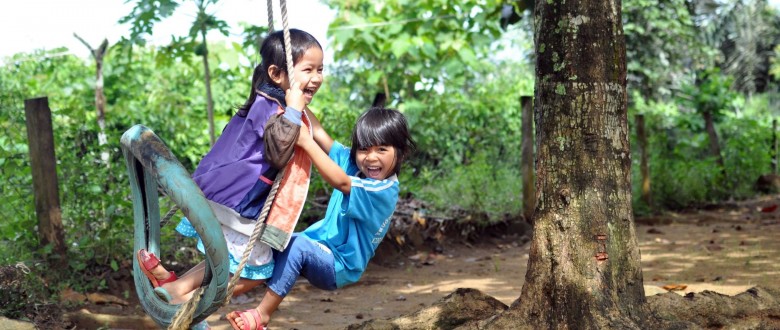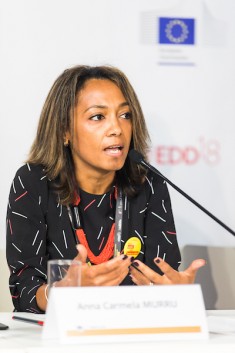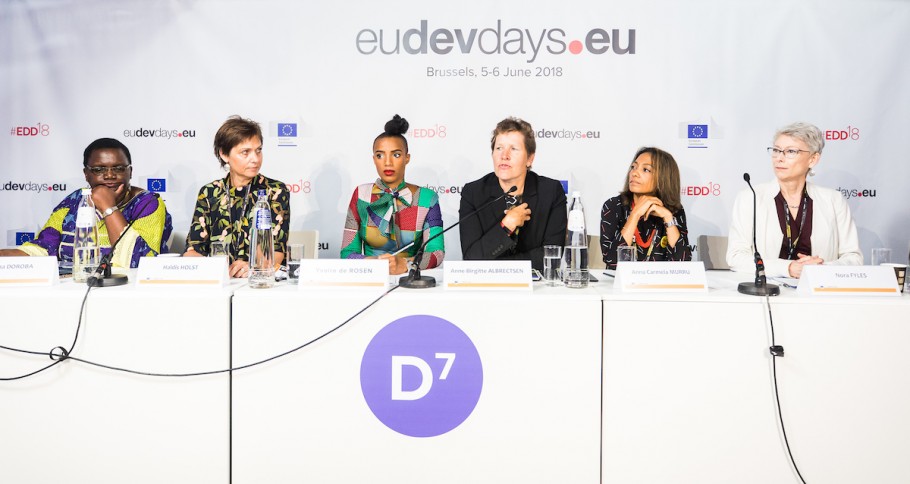
School-related gender-based violence in every shape or form is a severe violation of a child's human right to education, yet 240 million children are affected by it. At the European Development Days, VVOB once again voiced its concerns. General Director Sven Rooms discusses why the subject is at the top of every agenda we set.
Daily practice
A few years ago in rural Atakpamé (Togo), I got to talking with a mother about her children’s education. I questioned her about her – to me – puzzling choice to not send her daughters to school, while her sons did enjoy an education.
Her answer was as hard-hitting as it was obvious.
She didn’t want her daughter to be raped, a daily practice at school, she enlightened me. If a girl wants to do well, she would be subjected to it. Not only at the hands of teachers, at those of other students as well. What do you expect with teachers like that as role models? She breathed resignation rather than anger.
This mother chooses safety over education for her girl. A choice that is illustrative of a painful reality.
What would you do?
240 million children are approximately subjected to gender-related violence in and around schools. Yes, this mainly impacts girls, but boys are victims too. These are vague and optimistic estimates, as this type of violence remains mostly invisible to others.
School-related gender-based violence constitutes a severe violation of a child’s human rights. We’re not just talking about the insurmountable psychological and physical impact this violence has on children. Their right to education is also denied. How can a child properly learn in an environment she or he feels unsafe in? In an environment that forces them to direct their energy to their bodily safety instead of their learning?
Would you, a parent, send your children to school knowing very well what risks you are exposing them to?
Join the momentum

This destructive practice must be itself destroyed. Schools should be safe spaces where all children, girls and boys, can develop to their full potential. A goal VVOB has prioritised.
We put this issue at the top of every agenda we have the opportunity to set. We want to shed a bright light on this painfully invisible violation of human rights.
Last week, VVOB organised a debate at the European Development Days on eliminating school-related gender-based violence. The directors of UNGEI and FAWE, the CEO of Plan International, the deputy general secretary of Education International and our own Partnership Manager Anna Murru (left) sat at one long table to share their expertise with each other and the participants. It’s obvious VVOB isn’t the only organisation losing sleep over the matter. On the contrary, a momentum has been created to make a difference.
Gender at the earliest age
Gender-based violence isn’t always sexual. It’s often more subtle than that. Girls aren’t stimulated to reach their full potential in the same ways boys are. Their growth is stunted by these unequal expectations, either directly in schools or indirectly through discriminating policies.
To stimulate change in this respect, VVOB, FAWE and UNESCO are developing a toolkit for gender-responsive pedagogy. This toolkit supports teachers and school leaders to not view the sex of a child as a determining and dividing factor in a classroom, but rather to focus on the specific talents and learning needs of each child, regardless of sex. This new toolkit allows us to tackle the roots of the problem in preschool already. We cannot wait until later: gender stereotypes take form at this extremely young and impressionable age.
Global challenge
We’re confident that these types of interventions make the difference for all children, even for the young daughter in Togo. VVOB isn’t represented worldwide yet, but thanks to our valuable partnership with gender organisation FAWE and its many legs in Africa, our work can positively impact education for girls and boys in 33 African countries.
Gender is a priority issue in all VVOB’s activities. In Africa, but also in other partner countries. We tackle gender-based violence more specifically in Cambodia, Vietnam and Suriname with support from the European Union and Belgium.
Together with ministries of education, teachers and school leaders we transform education systems to one protecting all boys and girls from violence in and around schools.

VVOB organised a large debate on 'Eliminating gender-based violence in and around schools and other educational settings' at the 2018 European Development Days. The panellists from left to right: Hendrina Doroba, executive director of FAWE; Haldis Holst, deputy general secretary of Education International; Yvoire de Rosen, moderator; Anne-Brigitte Albrectsen, CEO of Plan International; Anna Murru, partnership manager of VVOB; Nora Fyles, head of the United Nations Girls’ Education Initiative (UNGEI) Secretariat
Picture credits: Europeaid, European Union




